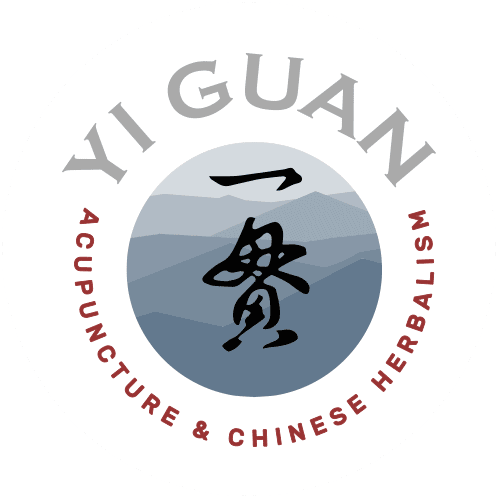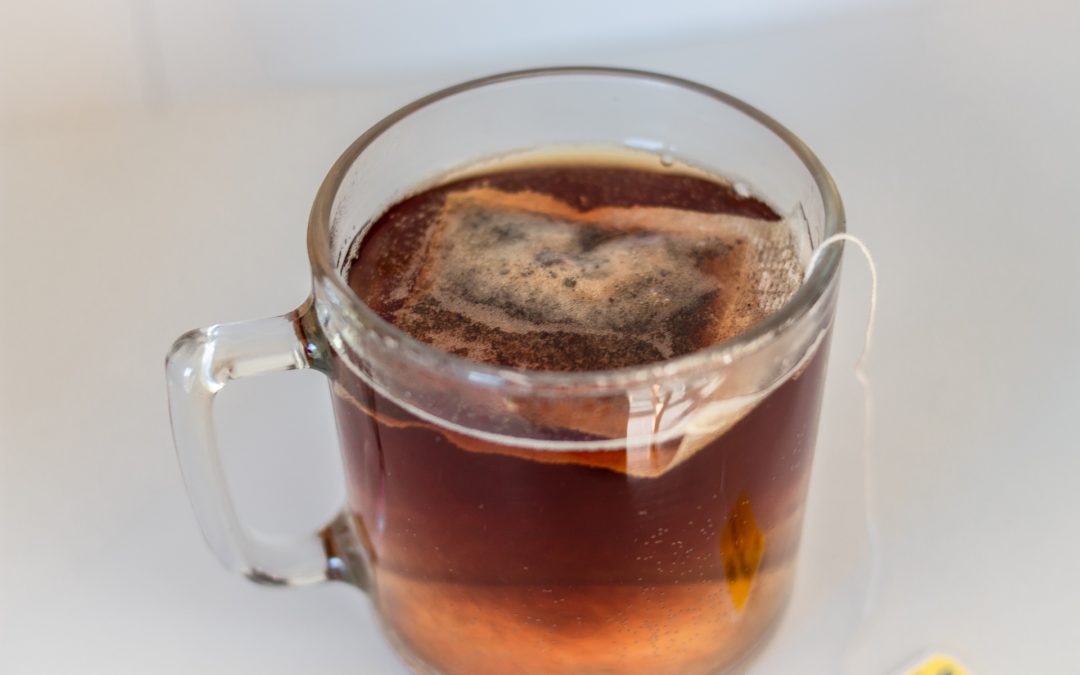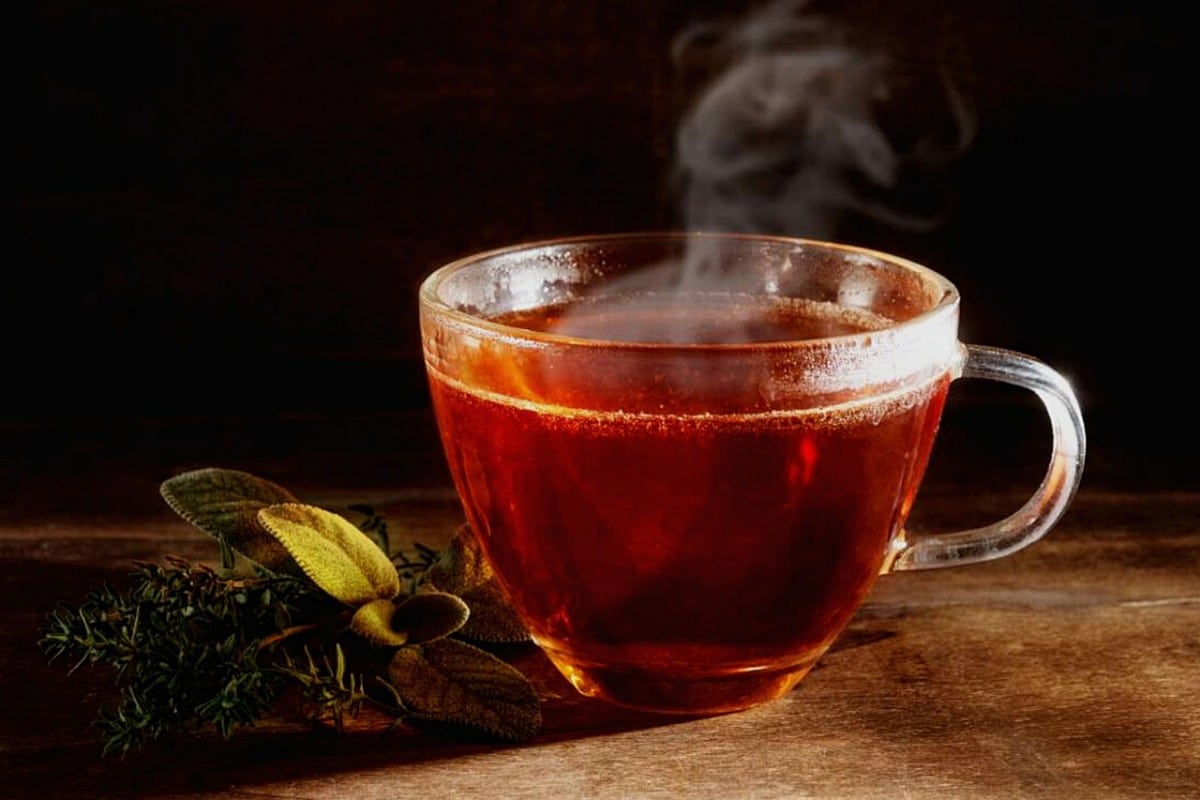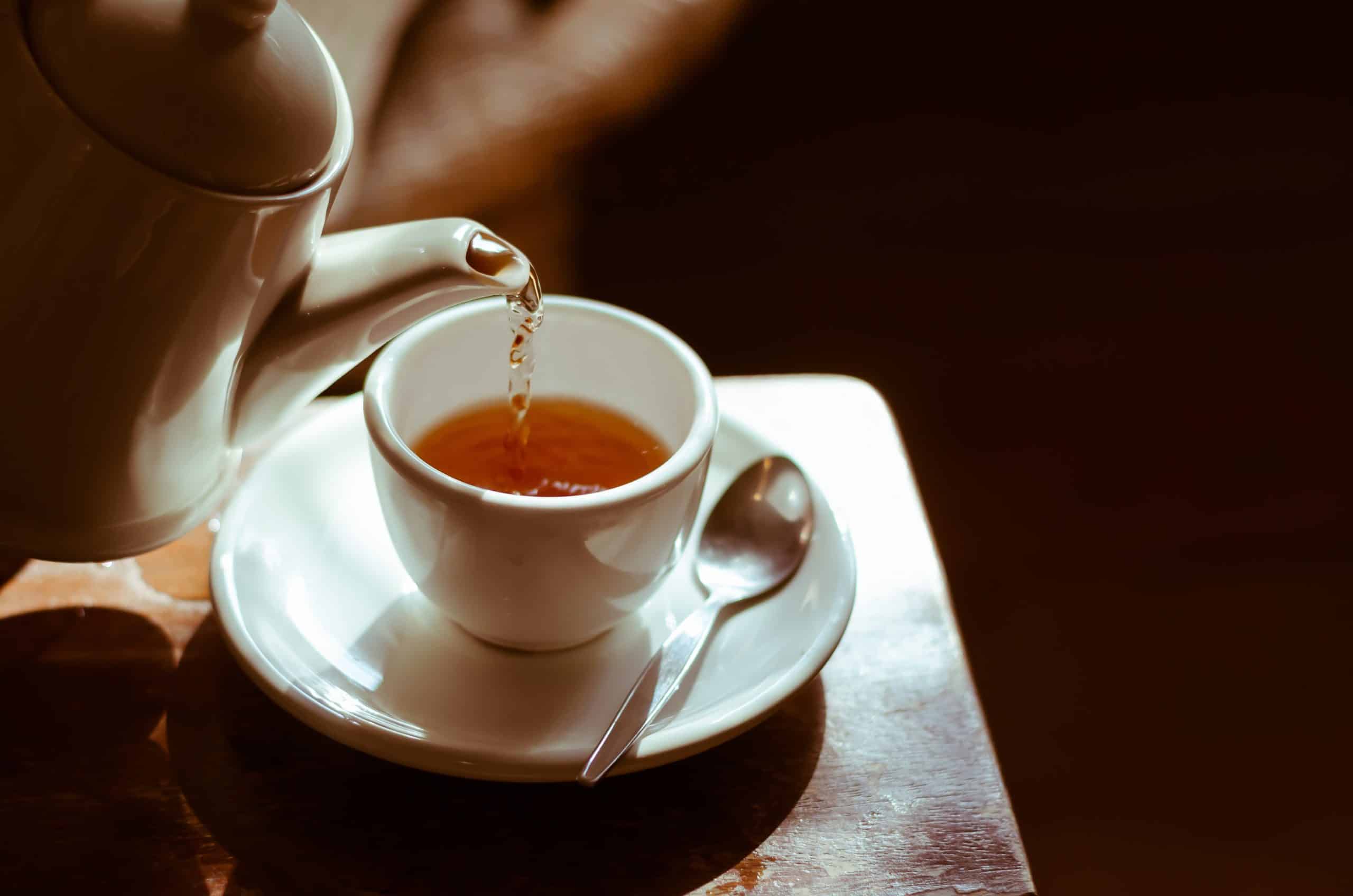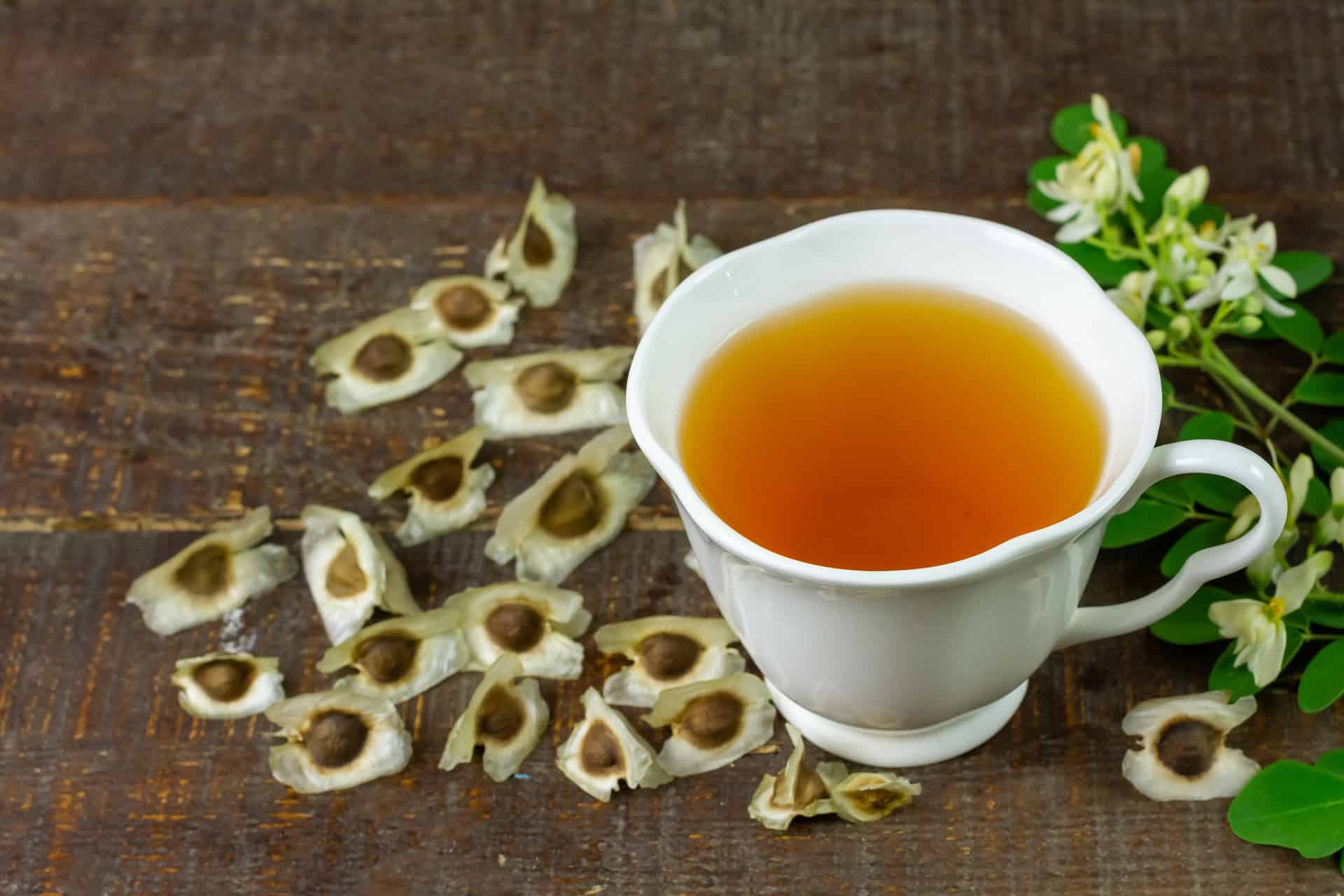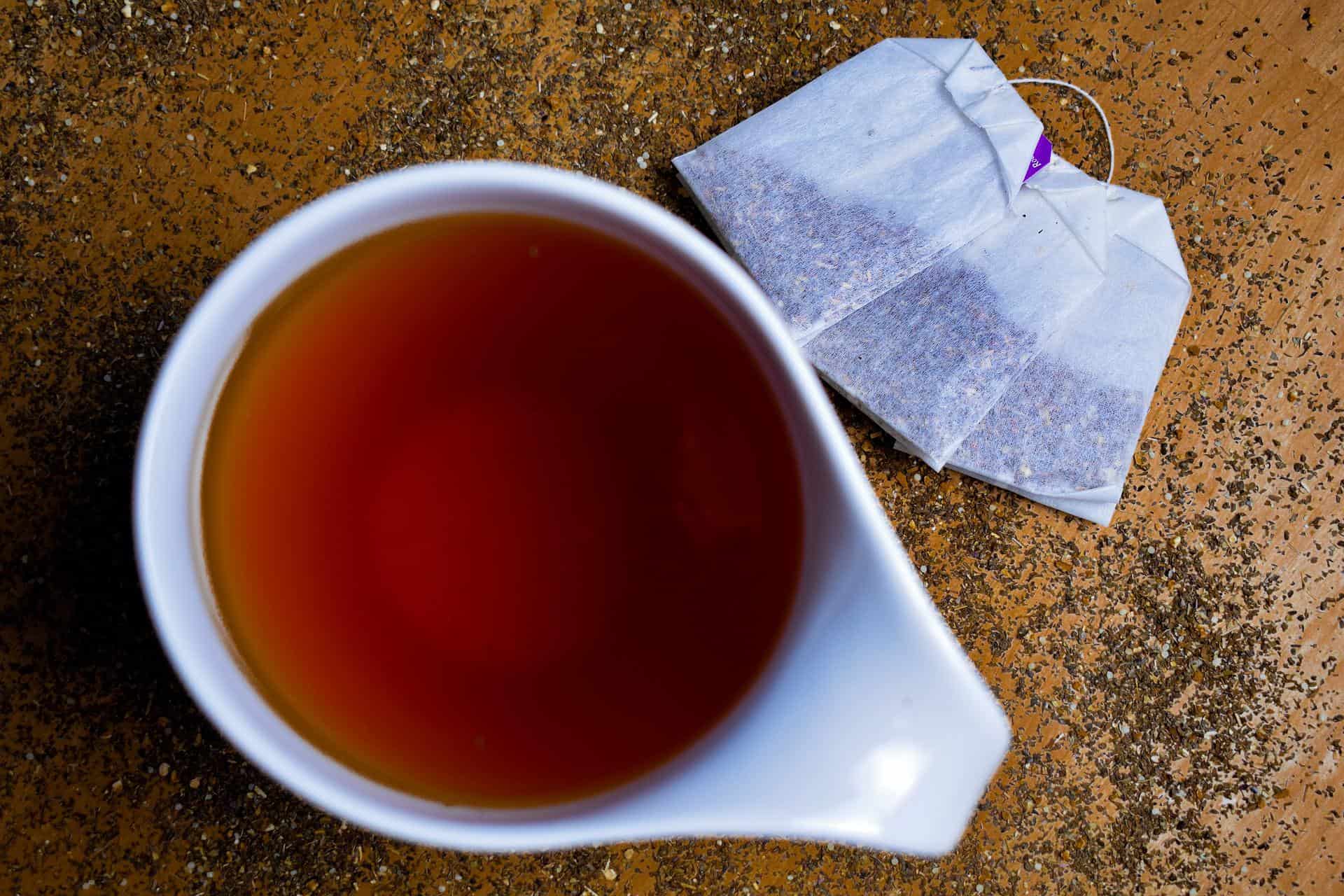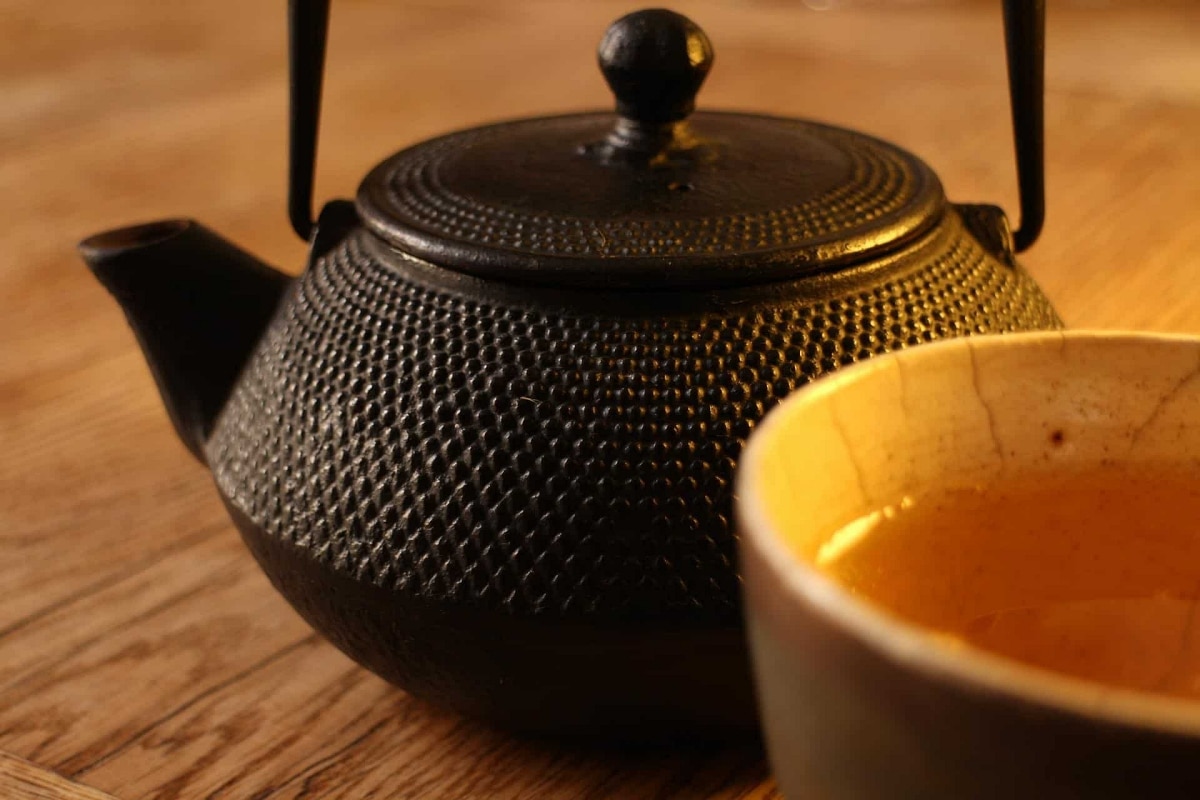HERBAL MEDICINE FOR SORE THROATS AND LARYNGITIS
Are you looking for a Chinese remedy for your sore throat? Yi Guan Acupuncture and Chinese Herbalism, an Austin-based provider of herbal medicinal teas, offers Calm Voice tea, a formulation of Chinese herbal medicine for sore throats.
CALM YOUR VOICE CHINESE TEA FOR SORE THROATS
If you have a sore, inflamed, irritated throat, or laryngitis from overuse, a cup of this healing tea can help calm the irritation. As with all of our medicinal teas, it is sold as a finely ground powder, and not as loose tea leaves or coarsely ground leaves. This caffeine-free tea is not steeped in a tea bag and later removed, like jasmine tea. But it is dissolved in the water and ingested with the beverage, similar to matcha tea. Add 3 grams of the powder (or 1-2 teaspoons) to a cup of warm water and enjoy!
HOW THIS HERBAL TEA SOOTHES SORE THROATS
This formula contains the herbs pi pa ye or loquat leaf, pang da hai or sterculia seed, mai men dong or Ophiopogon tuber, and xuan shen or figwort root. These herbs have been selected for their particular herbal temperatures, flavors, and specific herbal actions. Cooling herbs are selected, as a dry scratchy throat, according to Chinese medical theory, indicates lung heat. Herbal flavors describe not necessarily what the herb tastes like, but in what way the substances in the herbs tend to move qi and blood. In other words, herbal flavor describes the general type of pharmacological interaction with your physiology. In this formula bitter herbs and sweet herbs are selected. Bitter flavored herbs are those that tend to clear heat and many of them descend and drain, whereas sweet flavored herbs gently soothe, tonify, and increase fluid. One herb has a salty flavor, which means that it is good in softening and dispersing nodules and other gathered collections. Loquat leaf is bitter and neutral in temperature, it clears lung and stomach heat and directs lung and stomach qi downward, to eliminate coughing and wheezing. Sterculia seed is sweet and cold which serves to cool and clear lung qi, notably used for hoarseness of the voice, for which it is sometimes used just by itself to alleviate. Ophipogon tuber is sweet, slightly bitter, and slightly cold, and is selected for its ability to moisten the lung, generate fluid, and clear irritability especially dryness. Figwort root is salty, sweet, bitter, and cold. Figwort root clears heat and cools the blood, nourishes the yin (meaning, increases fluids), and softens and dissipates nodules, particularly of the neck and throat. The combined effect of the temperatures, flavors, and herbal actions of this formula cool a warm irritable lung and soothe and moisten the throat.
WESTERN PHARMACOLOGY BEHIND THIS HERBAL MEDICINE
Though in use for centuries, Chinese herbalism is relatively new to Western pharmacologic study. At this time, it is not fully known what the full complement of active compounds are in this formula. The system of Chinese herbalism, with its attributes of temperature and flavor, is based entirely within the larger Chinese medical theory and diagnostic method. It is sometimes hard to determine that if an herb is cooling or sweet, what that might equate to in terms of modern Western pharmacology. Many studies have been conducted on the herbs in this formula, attempting to determine what their effects mean in terms of modern Western science. Several studies on loquat leaf have determined that it can decrease inflammation by downregulating certain pro inflammatory interleukins, which also had the added benefit of preventing insulin resistance and optimizing the gut microbiome. Some studies investigated sterculia seeds antibacterial properties, particularly its inherent alkaloid and phenolic compounds’ ability to inhibit biofilm formation, which lends the herb its ability to treat a hoarse voice and irritated throat. Investigations of ophiopgon tuber show that its steroidal saponins, homoisoflavonoids and polysaccharides exhibited various pharmacological activities including anti-inflammatory, anti-oxidation, immune modulation, cough relief, and antimicrobial properties. It was also shown to modulate interleukins and tumor necrosis factor to protect against lung damage and even some forms of cancer. Figwort root was examined to demonstrate that its active ingredients mitigate upper airway inflammation again by modulating interleukins, MMMP-9, and NF-κB.
Who is Dr. Perez?
Dr. Dan Perez is both a Western-trained physician and a graduate of the AOMA Graduate School of Integrative Medicine. Based in Austin, Texas, AOMA is recognized as one of the leading schools in Chinese Medicine. Being both an expert in Western medicine and Chinese medicine, Dr. Perez offers his patients natural, minimally invasive and integrative medical options for treating a variety of chronic medical conditions.
Article Sources:
The Inhibitory Effects of Pentacyclic Triterpenes from Loquat Leaf against Th17 Differentiation, Immunol Invest . 2020 Aug;49(6):632-647, https://pubmed.ncbi.nlm.nih.gov/31795780/
Sesquiterpene glycoside isolated from loquat leaf targets gut microbiota to prevent type 2 diabetes mellitus in db/db mice, Food Funct . 2022 Feb 7;13(3):1519-1534. https://pubmed.ncbi.nlm.nih.gov/35072186/
Composition Analysis and Inhibitory Effect of Sterculia lychnophora against Biofilm Formation by Streptococcus mutans, Evid Based Complement Alternat Med . 2016;2016:8163150 https://pubmed.ncbi.nlm.nih.gov/27190540/
Alkaloids from the seeds of Sterculia lychnophora (Pangdahai), Phytochemistry . 2003 Jun;63(4):475-8, https://pubmed.ncbi.nlm.nih.gov/12770602/
Ophiopogon japonicus–A phytochemical, ethnomedicinal and pharmacological review, J Ethnopharmacol . 2016 Apr 2;181:193-213. https://pubmed.ncbi.nlm.nih.gov/26826325/
Ophiopogon japonicus inhibits radiation-induced pulmonary inflammation in mice, Ann Transl Med . 2019 Nov;7(22):622, https://pubmed.ncbi.nlm.nih.gov/31930023/
Ophiopogon Saponin C1 Inhibits Lung Tumors by Stabilizing Endothelium Permeability via Inhibition of PKCδ, Int J Biol Sci . 2020 Jan 1;16(3):396-407, https://pubmed.ncbi.nlm.nih.gov/32015677/
Scrophularia buergeriana attenuates allergic inflammation by reducing NF-κB activation, Phytomedicine . 2020 Feb;67:153159, https://pubmed.ncbi.nlm.nih.gov/31901567/
Scrophularia ningpoensis Hemsl: a review of its phytochemistry, pharmacology, quality control and pharmacokinetics, J Pharm Pharmacol . 2021 Mar 27;73(5):573-600. https://pubmed.ncbi.nlm.nih.gov/33772290/
Chen, John & Chen, Tina, Chinese Herbal Formulas and Applications, Art of Medicine Press 2015
Let's get started!
This could be the most important step you take in your health journey. Schedule a consultation now, or complete the short form and let's connect.
Free 15-min Consultation
Phone
NEW Location
Yi Guan Acupuncture and Chinese Herbalism
11614 Bee Caves Road, Suite 230,
Austin, TX 78738 (directions)
